The lawn has enjoyed decades of popularity, and while there are still plenty of things to love about a great lawn, that expanse of green can sometimes be more trouble than it’s worth. Check out these 15 inspiring examples of yards using gravel, stone, native plantings and more, for fire-safe, drought-conscious and easy alternatives to the traditional green.
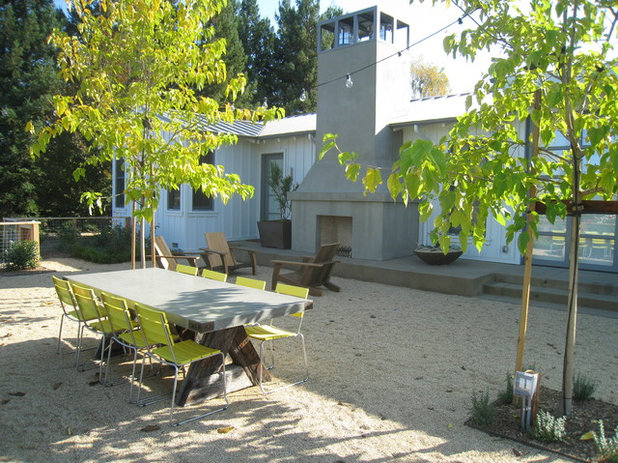
Garden Architecture
1. Plan for the future with properly positioned young trees. Once trees reach groundwater, they can thrive with little to no assistance. And in a mostly “dry” yard, trees provide greenery and shade. Just be sure to consult with knowledgeable staff at a local nursery (or call an arborist) to find out which trees will do well in your region. Also consider the mature size of the tree and be sure to plant far enough from your home and other structures that it will not cause problems down the line.
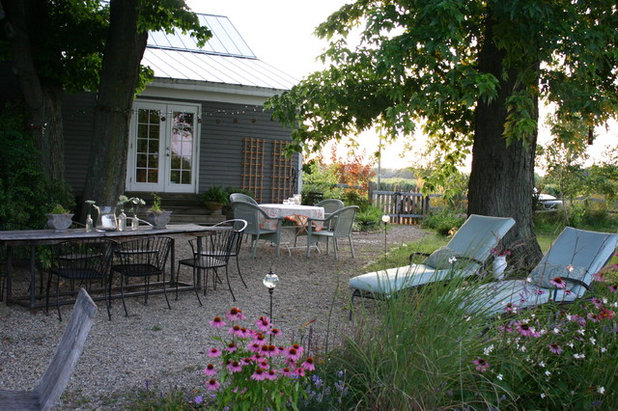
Rebekah Zaveloff | KitchenLab
2. Work existing mature trees into your design. Have a mature tree on your property? Count yourself lucky. A healthy mature tree can become the focal point of a lawn-free yard. Plan a gravel patio around your tree, creating an outdoor space for lounging, dining and hanging out beneath the canopy of leaves.
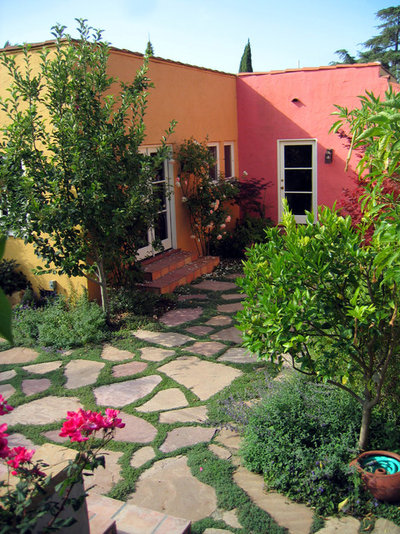
Acanthus Design-Denise Woolery
3. Plant a ground cover between pavers. Strike a balance between hardscape and lush greenery by filling the gaps between pavers with ground cover. Get advice from a local pro about a ground cover that will suit your climate.
Patio Pavers Go Green in Between
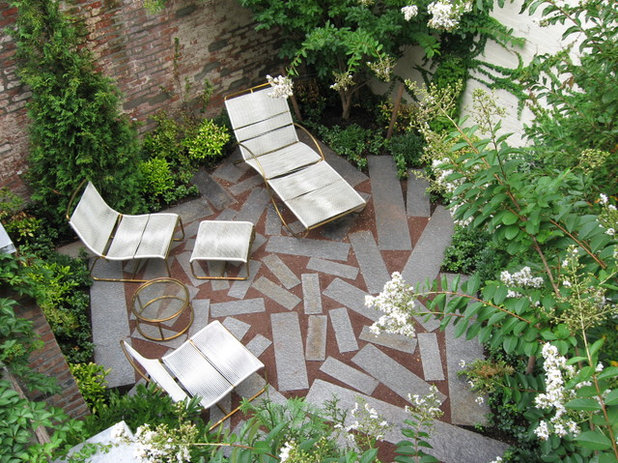
The Todd Group
4. Get a creative look with scatter-patterned rectangular stones. Follow the lead of the designers of this Brooklyn, New York, courtyard, and use rectangular stones in several different sizes to create a random-looking (but quite intentional) pattern. If you are doing the work yourself, be sure to lay out all of your stones on the ground before beginning work and snap a picture — you can always refer to it if you run into trouble during installation.
5. Create a secret-garden feel with climbing plants. Soften the edges of a mostly hardscaped yard with climbing vines and flowers. This works especially well in small urban gardens, as the climbing plants provide greenery and privacy, and make the yard seem more spacious.
See more ways to use climbing plants in small gardens
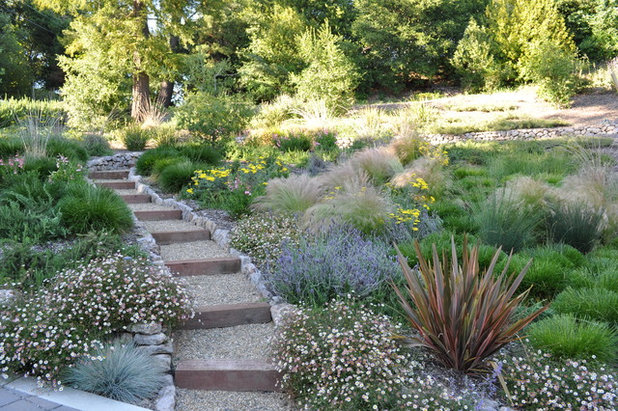
Huettl Landscape Architecture
6. Plant a native meadow. If you have a larger outdoor space to contend with, you may not want to cover it all in gravel or stone. Think instead about creating a low-maintenance “meadow” of native plants that requires little water or upkeep. A local landscaping pro or a staffer at a good garden center should be able to guide you in choosing plants that will do well in your area. This is also a good option for sloped yards, where hardscaping would be more difficult.
Find plants native to U.S. regions
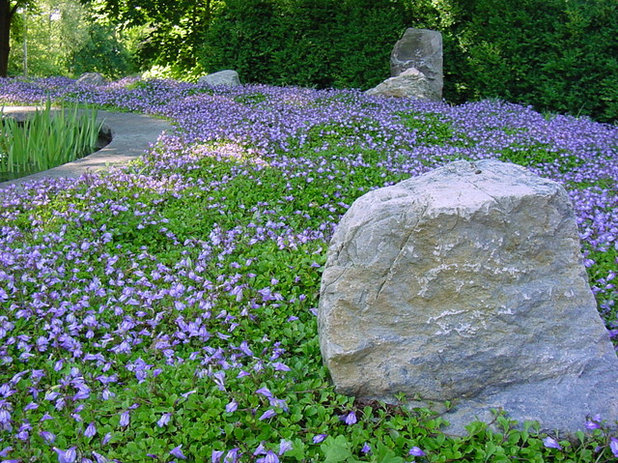
Liquidscapes
7. Or plant a carpet of flowers. Miss the pleasure of running across an expanse of grass, but don’t want to deal with the mowing and watering? A ground cover is a smart alternative. While not as sturdy as grass, many ground cover plants (even those that bloom) can stand up to some foot traffic — inquire at your local plant center to find a good option.
Browse great ground covers
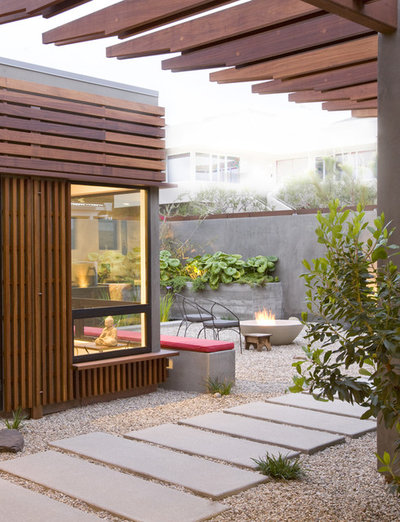
Laidlaw Schultz architects
8. Echo your home’s architecture. When planning your outdoor rooms, think about mirroring the shape of your home in materials as well as in how your outdoor spaces flow together. For instance, in the space shown here, long, rectangular pavers mirror the rectangular shapes in the siding, and the layout of the paths and yard closely follows the shape of the house itself, creating a seamless design.
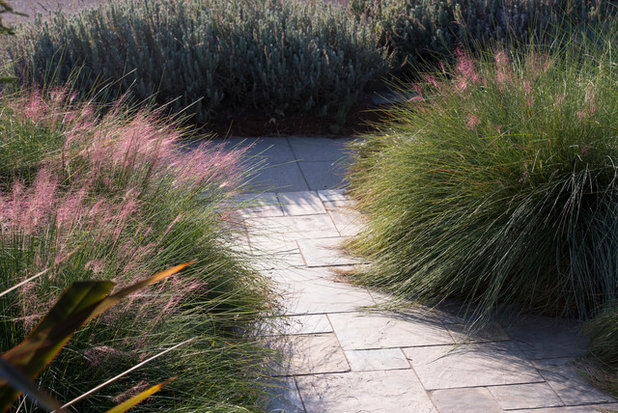
June Scott Design
9. Make lush borders with tall grasses. Big clumps of grasses creeping over the edges of pathways and other hardscaped areas bring softness to a lawn-free yard. Grasses can also be a good lawn alternative in a front yard, especially paired with paving-stone paths and a ground cover.
Browse great ornamental grasses
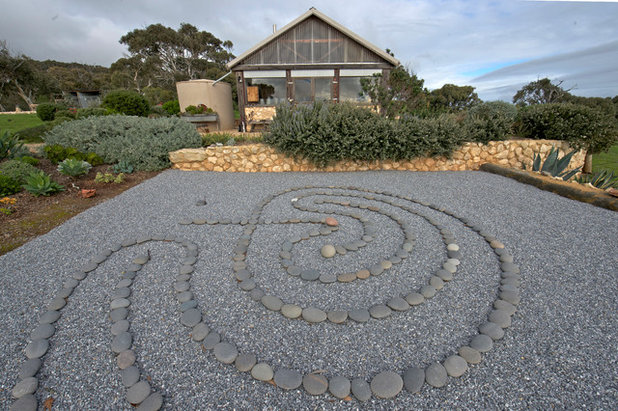
Jeni Lee
10. Plan a maze. Looking for something completely different? Add a meditative element with your very own backyard maze. Mark out a space and fill it with gravel, then use smooth stones to create a curving maze.
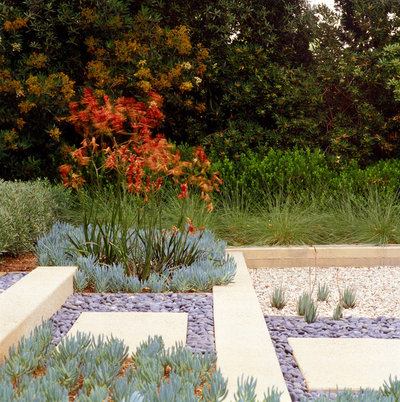
EPT DESIGN
11. Compose a palette of stones in many hues. Even if your plantings are minimal, you can still have rich color in your yard. There are many different colors of gravel and stones available, including pale cream, gray, red, purple and black. Want to shake up the look even more? Try smooth sea glass pebbles or shells in an area that gets less foot traffic.
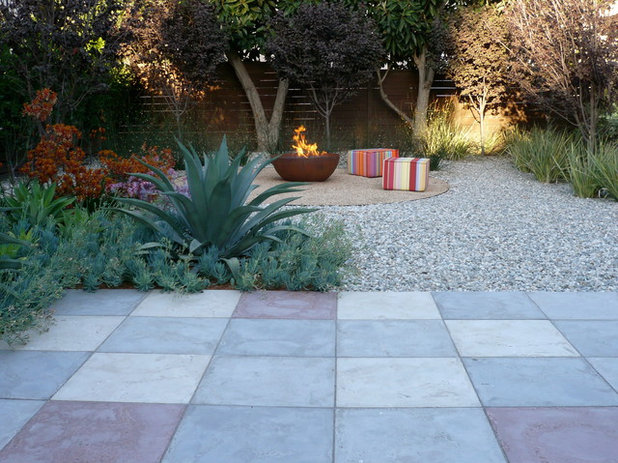
Valle de Verde
12. Use different materials to define zones. Create distinct areas in your backyard by varying the type of hardscaping. For instance, try using pavers closest to the house, concrete around a fire pit and gravel in between.
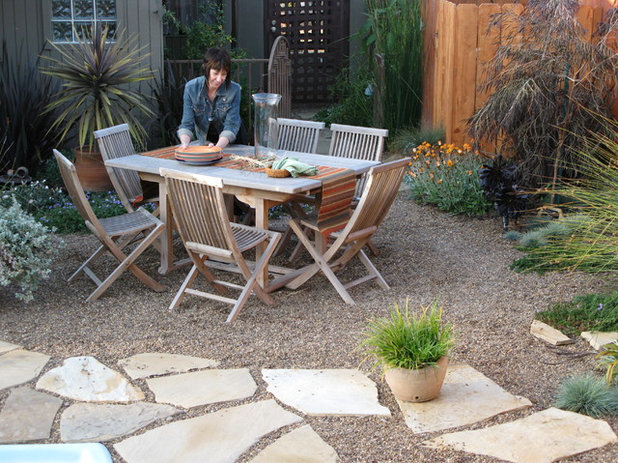
debora carl landscape design
13. Choose natural stone and pea gravel for a low-key look. If you are going for a natural, casual look in your yard, look for stone with rough edges rather than precise pavers, and skip the concrete in favor of rustic (and inexpensive) pea gravel. This combination is budget friendly
and chic, calling to mind the relaxed outdoor areas of homes in Provence and Tuscany.
5 Gravel and Stone Types for a Rockin’ Landscape
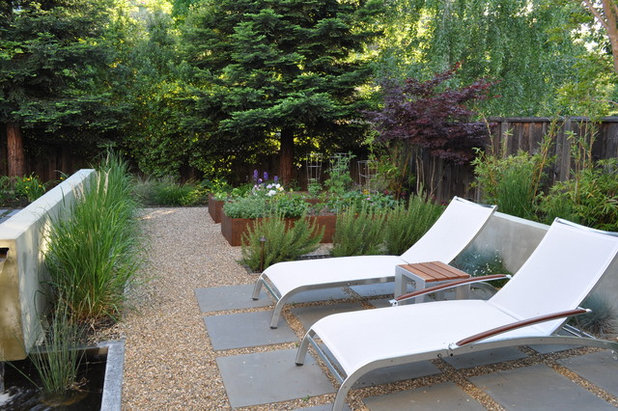
Huettl Landscape Architecture
14. Include edibles. A lawn-free yard wouldn’t be complete without some form of edibles. Build raised planters, mix edibles into a perennial border or simply place a few pots of chili peppers on the patio.
Crop-by-crop guides to growing your own edible garden
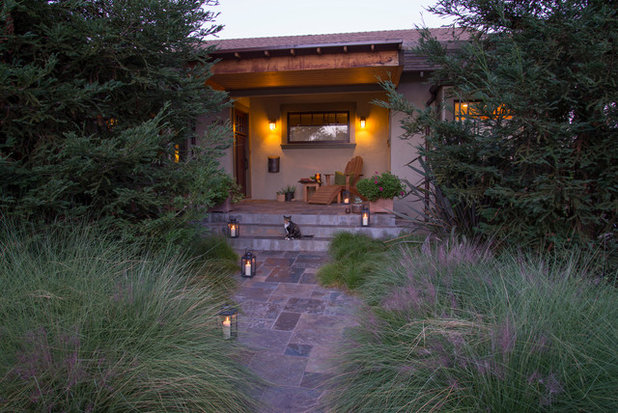
June Scott Design
15. Go native in the front yard. So often we don’t even use our front yards. Consider going with something easy but attractive, like billowing native grasses lining a stone walkway.
Tell us: Do you have a lawn-free yard? If not, would you ever consider parting with your lawn? Why or why not?





